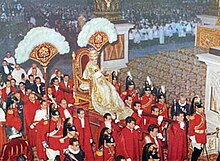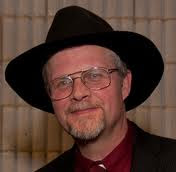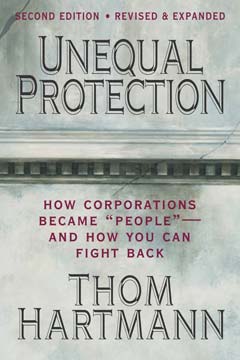 Richard Muller says in his PRRD, Vol. 4 page 35,
Richard Muller says in his PRRD, Vol. 4 page 35,
“Joachim appears to have proposed a divine Triad of persons who together constitute one God, denying the identity of the persons as Lombard had defined it ‘One supreme reality (res),’ and instead insisting on a generic unity…Joachim opposed Lombard’s teaching on the ground that it introduced a quaternity…Joachim’s…view…was unmistakably tritheistic, inasmuch as it removed all hint of quaternity by defining the unity of divine essence as generic rather than numerically.”
First, I reject, “a divine Triad of persons who together constitute one God”. I affirm that only the Father is the One God. Joachim is heretical by affirming three persons that constitute God-ness which pertains to nature while affirming three numeric divine natures. This is the fundamental mistake in the West: seeing God-ness as something that pertains to nature rather than the Hypostasis of the Father.
Now Muller does mention an issue on page 37 that needs to be addressed. The materialism of both East and West becomes evident in their Theology Proper. Recently, I have been discussing detailed issues concerning the Eternal Generation at Articuli Fidei and a singular issue arises: If the Son emanates out of the Father, did the Father lose a part of himself that subsequently (whether pertaining to logical or temporal sequence is irrelevant here) constituted the Son?
As a Scripturalist, I follow Dr. Clark’s system of Philosophy and Theology Proper which adhered to a form of Christian Platonism, where the Divine Ideas of Plato become the Ideas and Attributes of God and subsist within him. These Ideas then constitute his being at a fundamental level. They are not created representations of God or his individual attributes. They are God at some fundamental level. Dr. Clark said in expositing Plato: “A single body cannot be in several places at once, but any number of men throughout the world can have the same thought at the same time; and if, as is surely the case, the Ideas are more of the nature of thought than of body, the objection is convicted of a false analogy.” Gordon H. Clark, Thales to Dewey (Unicoi, Tennesse.: The Trinity Foundation, 1957, Fourth edition 2000), 78.
Here then is my solution to the Eternal Generation: When I communicate an idea that I affirm myself as constitutive of my own personhood, to another person, and the other person believes it and therefore becomes personally constituted by this thought as well, I lose nothing of myself or my thought in doing so. This is the nature of thought (two people can have the same thought at the same time without losing anything of themselves, per Clark) as opposed to the nature of physical composition and the transference of physical substance from one subject to another. This is analogous (And the analogy that I am appealing to is the analogy of proportion, not the analogy of proportionality) to the eternal generation of the Son.







-1-.jpg)


























A few points:
– I am not familiar with the objection you’ve faced, but it seems to be a trivial one. As the Father is spirit, there is nothing material which can be associated with Him anyway. Unless He were to “lose” a predicate, then, I fail to see in what way He could “lose” something of Himself. But here is nothing which may be predicated of the Father at one point in time and not another, especially given that the generation of the Son is eternal. Indeed, the timelessness of God, if true, would require His immutability, in which case it can’t be the case He had ever “lost” anything.
– I agree with the majority of what you say, but I have a question when you write “the other person believes it and therefore becomes personally constituted by this thought as well.” Perhaps you disagree with Clark or perhaps I am misunderstanding him, but I didn’t think he believed we “become” who we are. The truth about who we are is immutable, eternal. I think he says this in his reply to Ronald Nash in Clark and His Critics, though I don’t have it with me. Yet in order to allow for the possibility of time at all, perhaps there is some nuance here I am missing. I am a bit distracted at the moment, though, so I can’t really say much more on this right now.
– I would add that while it is true that multiple people can assent to the same truth, but this position doesn’t collapse individuals into each other so long as it is kept in mind that each individual reflexively indexes different propositions. One cannot communicate one’s ego to another, but as the meaning of utterances by, say, the Father that, for example, “I am unoriginate” are same as the meanings of the utterances of the Son, Spirit, angels, and believers that “the Father is unoriginate,” so distinct persons can in that sense be of one mind without conflation.
Ryan,
“As the Father is spirit, there is nothing material which can be associated with Him ”
>>>The post here is an explanation of that exact point.
““the other person believes it and therefore becomes personally constituted by this thought as well.” Perhaps you disagree with Clark or perhaps I am misunderstanding him, but I didn’t think he believed we “become” who we are. ”
>>>I am speaking with reference to the human perspective.
“I would add that while it is true that multiple people can assent to the same truth, but this position doesn’t collapse individuals into each other”
>>>The post though is an explanation of why and how that is possible- the nature of thought.
Then I am in full agreement.